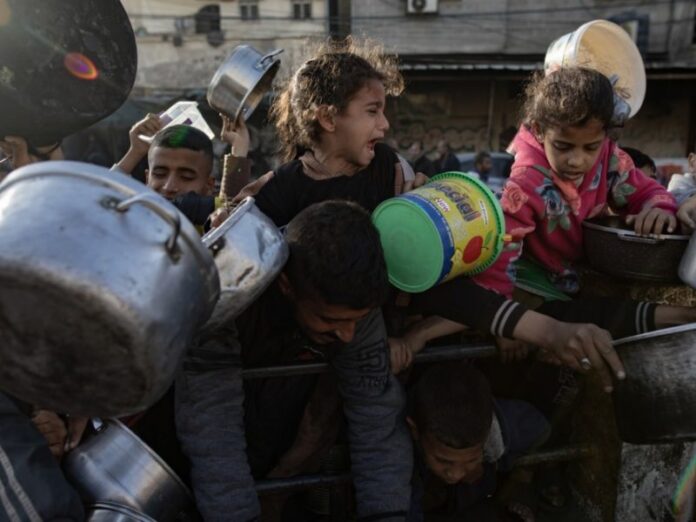The Integrated Food Security Phase Classification (IPC) report indicates a significant rise in the number of people experiencing “catastrophic hunger” in Gaza, reaching 1.1 million, nearly half of the population. The report warns that famine is imminent in the North Gaza and Gaza Governorates, with projections indicating a crisis period from mid-March 2024 to May 2024.
In a separate development, Israeli forces launched a second assault on the main hospital in the Gaza Strip early on Monday, alleging the presence of Hamas militants within the compound. Palestinian sources reported that tens of thousands of civilians sought refuge in the hospital.
The Israeli military claimed to have targeted an armed Hamas commander hiding within the medical facility, resulting in casualties on both sides. This marks the second attack on Shifa Hospital, with the military previously alleging the existence of a Hamas command center within the premises.
Critics have accused the Israeli army of endangering civilian lives with unsubstantiated claims, as previous allegations of Hamas infrastructure within the hospital were not supported by evidence.
The latest findings from the World Food Program’s Integrated Food Security Phase Classification (IPC) underline the severity of the situation, with two out of three criteria for famine classification already met. While data on death rates is not fully available, it is anticipated that residents, particularly children under four, are facing famine-level starvation and malnutrition in the impacted areas.



